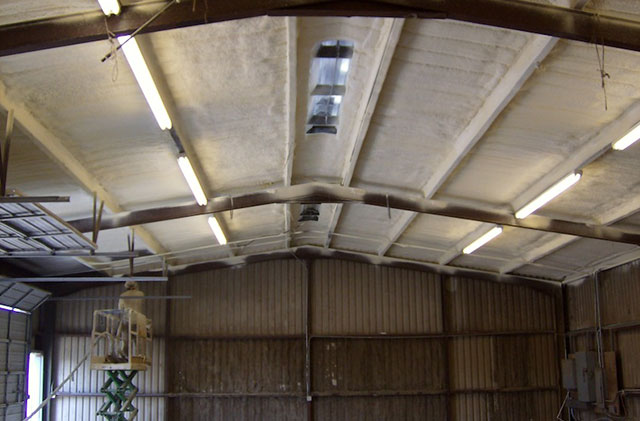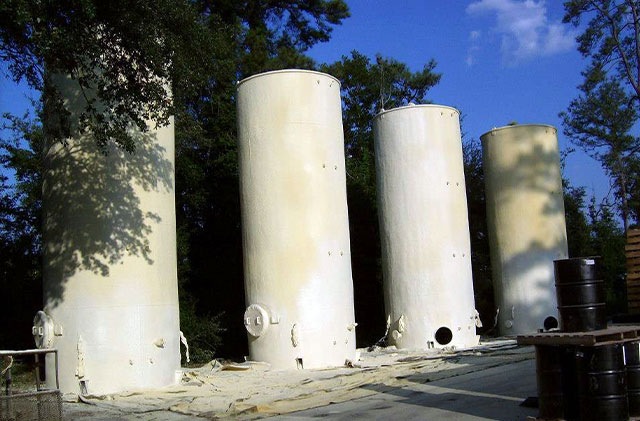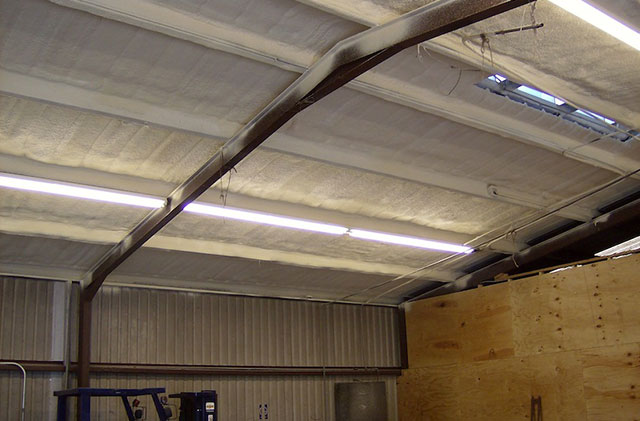Sprayed polyurethane Foam is a combination of isocyanate and polyol. These two components are fed through a proportioner which heats then pumps the two separate components to the spray gun, where they are mixed and sprayed onto the substrate. Because it is sprayed onto the roof as a liquid, it forms a single continuous structure that is seamless and very stable. SPF requires a clean surface for proper application. It must be dry, free of contaminants like oil, and properly fastened to the substrate in accordance with the proper building codes..
Sustainable buildings are an enormous benefit for building owners, occupants, and the environment. Take an active role in helping reduce greenhouse gases, thus slowing the effects of global warming. Spray polyurethane foam insulation and roofing, because of its efficacy as an air sealer and waterproofing agent, has the potential to be a key component of the durability management strategy for a building. The high R-Value and performance characteristics of spray foam contributes to the energy-efficiency of a building.


Spray foam insulation is renowned for its multi-use applications and unrivaled versatility when incorporated into commercial properties and/or structures.
Spray foam insulation seals the building envelope to stop conditioned indoor air from escaping and prevent unconditioned air from entering a building. Air exchange in and out of a building is a leading cause of escalated energy bills.
Elastomeric protective coatings are commonly applied to protect surfaces such as storage containers, walls and equipment in food processing plants, and other containment units to reduce UV surface degradation.
Wall shear and racking strength can be up to three times stronger when insulating with closed-cell foam, rather than conventionally insulated walls.
As has been noted, spray foam insulation enjoys a wealth of uses, applications, and areas of coverage that other insulation products, materials, or technology just cannot match. In addition to its diversity in application, spray foam roofing also has the inherent benefit of being extremely durable and cost-effective for commercial properties.
Polyurethane foam is applied as a liquid, creating a single monolithic membrane that covers the entire roof. There are no seams or joints, the source of the majority of leaks in traditional roofs
The foam can be sprayed onto virtually any surface, irregularly shaped roofs and protrusions are readily taken care of.
Foam roofing typically weighs around 50 lbs. per square, versus 800 lbs. for a built-up roof and 100 lbs. for ballasted single-ply roofs.
Foamed roofs require a minimum of upkeep, creating little waste and have an indefinite lifespan.
SPF has the best insulating properties available for commercial construction today.

Foam Kote, Inc. is committed to producing the highest quality projects, maintaining lasting relationships, providing excellent service and maintaining a safe work environment.
ADDRESS
1102 Minnesota St.
South Houston, TX. 77587
PHONE
(713) 943-0672
EMAIL
[email protected]